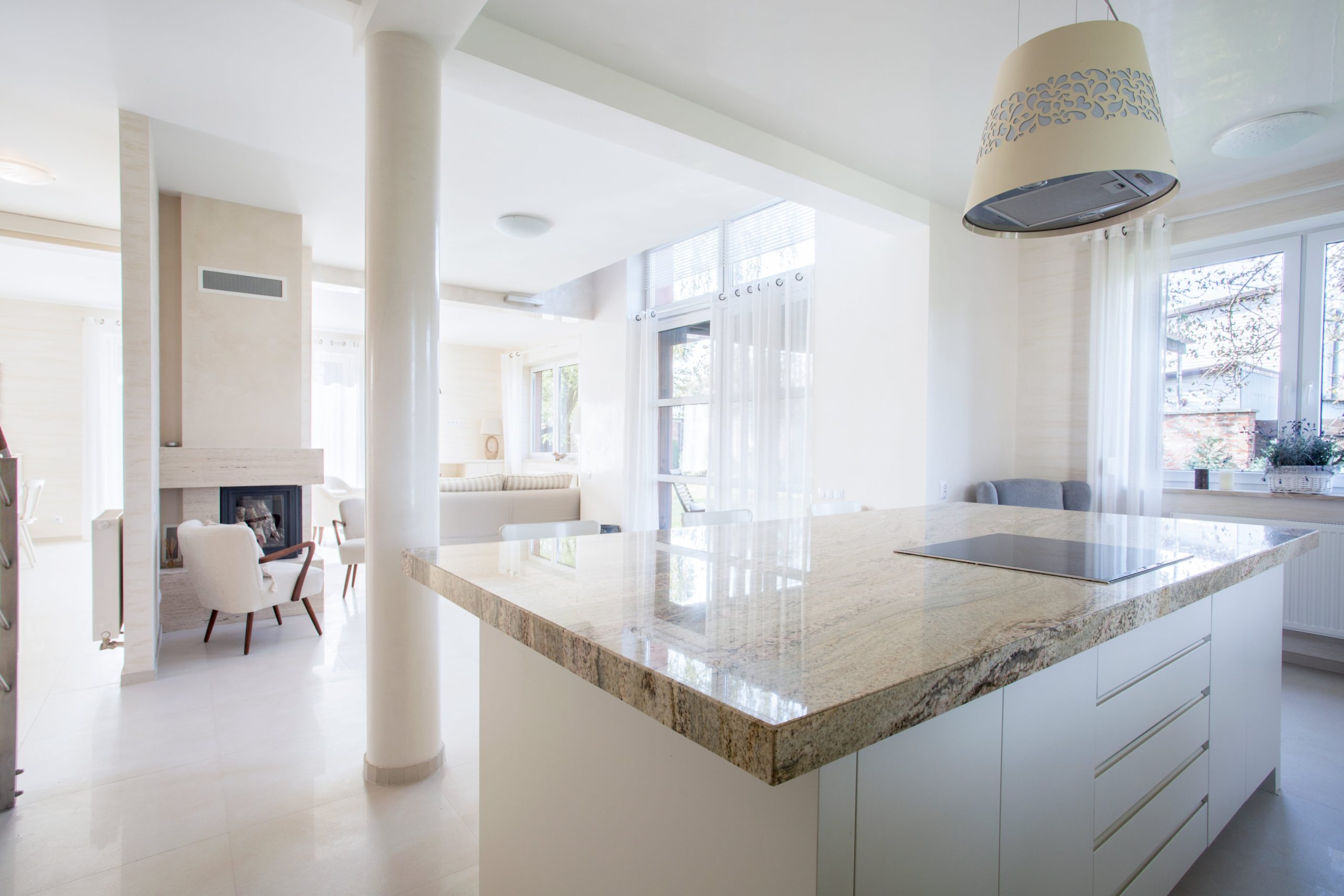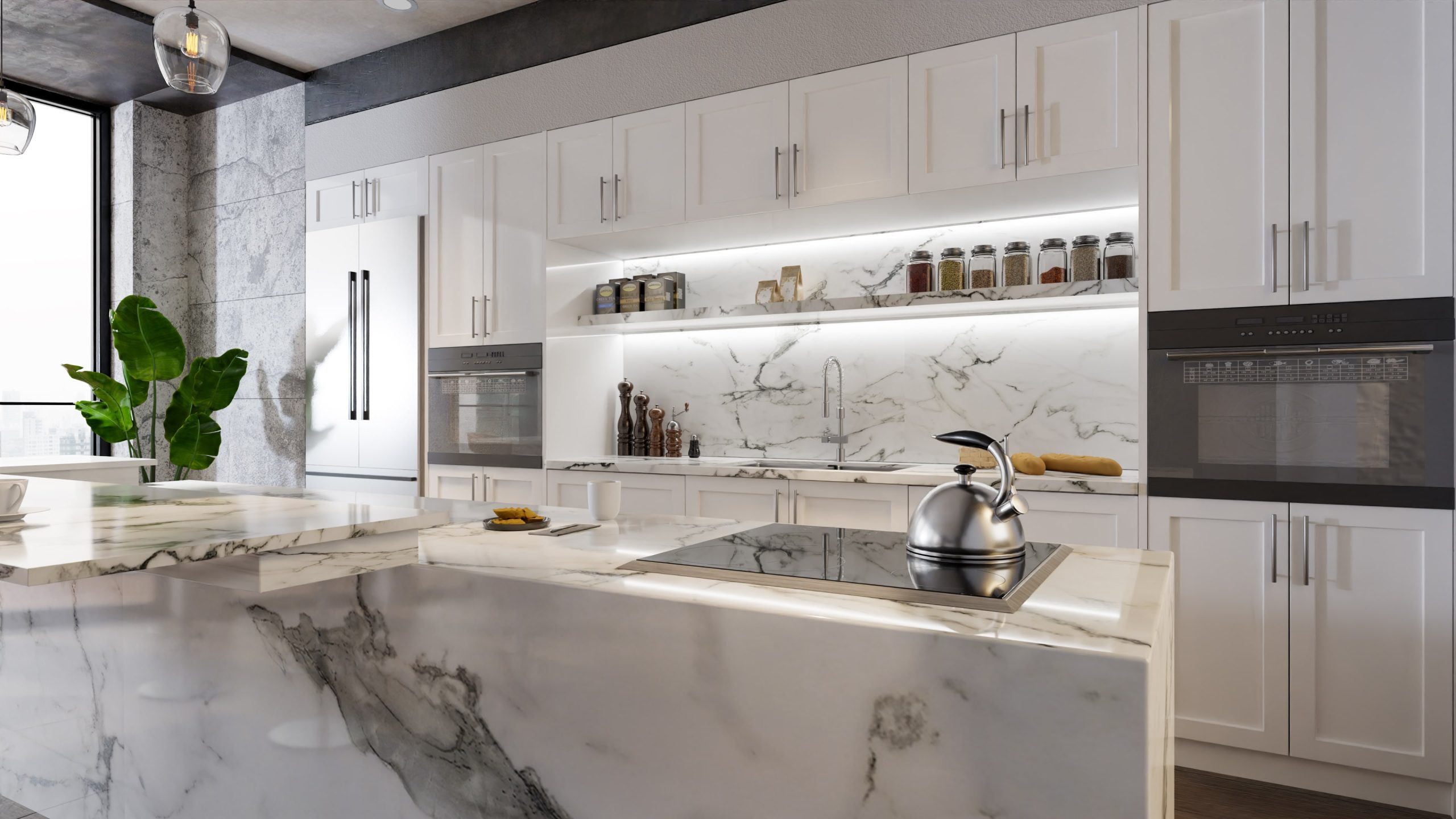Do I Need to Seal Quartz Countertops? 5 Quartz Considerations You Need to Know

Whether you lean toward a breezy, timeless, tonal white design or you’re drawn to bright, bold colors, the right countertop is often the lynchpin of your new interior, informing other elements like cabinets, flooring, and fixtures. Of course, there’s no shortage of both natural and engineered materials to choose from.
Quartz is gaining popularity because it not only delivers ample functional benefits, it can look like other materials, such as marble. It also has the added appeal of being low maintenance. What you may want to know is, do I need to seal quartz countertops? What benefits and drawbacks are associated with this counter material? Here are some top considerations before you choose quartz.
1. Cleaning and Maintenance
Let’s dive right into the question at hand. Do I need to seal quartz countertops? The answer is no. Engineered quartz is a solid surface material, which means it is non-porous, low-maintenance, and requires no sealant. That said, if you want to keep it looking as gorgeous as the day you bought it, you’ll have to practice proper care.
You might not worry unduly about staining dark quartz, like the Black Marquina marble-look Silestone in this contemporary New York kitchen, but it’s natural to worry a bit more if you’re dealing with a bright white surface. Luckily, quartz is incredibly stain-resistant, and you can clean it simply enough with a damp rag or warm, soapy water for daily messes.
An all-purpose household cleanser should do the trick if you’re dealing with something more significant, like stuck-on food splatter or greasy grime. For truly tough stains or gunk, a soft cleanser like Bar Keepers Friend is ideal.
2. Non-Porous Surface

One thing you need to understand about engineered quartz is that it’s non-porous, which denotes a range of practical benefits for busy households. Notably, it makes for a highly stain-resistant surface, but it’s also food safe and resistant to harboring microorganisms like bacteria, mold, and mildew. Well-known brands like Caesarstone, MSI, Silestone, and more are kosher-certified.
3. Resistance to Harm
A bright, luminous, marble-look quartz, like the sample used for the unique island in this transitional kitchen, will offer stain resistance to withstand spills and splatters, along with tougher messes. However, it also needs to hold up to the use and abuse of daily life in a busy household, whether you have kids and pets, you entertain frequently, or you’re just rough on the surfaces in your home.
Thanks to mindful production, quartz offers strength and durability similar to even the hardest natural stone surfaces. With no sealant whatsoever, quartz is resistant to harm from scratching, etching, chipping, and cracking. I can withstand a lot of typical wear and tear.
Because this surface is food safe, you could even prep food without a cutting board. However, this is not recommended as it will likely dull your cutlery.
4. Heat Resistance
Many homeowners are interested to know if different counter materials offer enough heat resistance to withstand placing a hot pot or pan directly on the surface. Quartz does offer some level of heat resistance because it is a strong, solid, engineered product made up primarily of natural quartz.
However, it is always recommended that a hot pad or trivet be used when placing piping hot pots and pans on the countertop. If the heat is too high, it could cause surface damage or discoloration to your countertop. While you can have heat damage professionally treated, it’s best to avoid it in the first place.

5. Aesthetic Considerations
There are plenty of practical reasons to choose quartz countertops, but you’ll also enjoy several aesthetic benefits. For starters, there are tons of options for designs to suit every household and personal style.
Maybe you like the look of natural stone, like a Calacatta or Black Marquina marble. Or perhaps you want to mimic the look of concrete without the porosity, in which case you could choose a concrete-look quartz like the Cambria Greystone featured in this sleek, contemporary kitchen design.
You’ll also find totally unique designs, from pure white surfaces to bright colors to speckled nougat and sparkle effects. In addition, engineered materials offer the option for larger slab sizes so that you can minimize seams on large islands or expansive perimeter countertops.
Add Function and Beauty to Your Kitchen
If you’re sold on the many practical and aesthetic benefits of quartz, including its low-maintenance appeal, stop by an Academy Marble showroom in Bethel, CT, or Rye, NY, today to learn more and start looking at samples.


